 Petzlover
Petzlover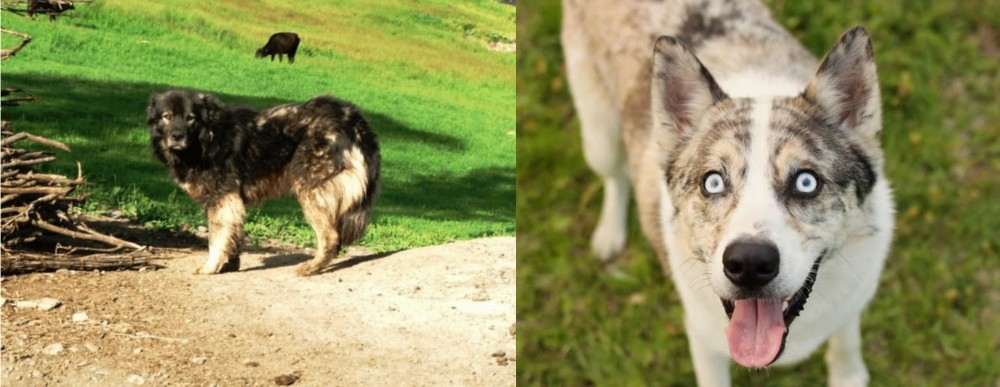 Kars Dog is originated from Turkey but Shepherd Husky is originated from United States. Kars Dog may grow 26 cm / 11 inches higher than Shepherd Husky. Kars Dog may weigh 40 kg / 89 pounds more than Shepherd Husky. Both Kars Dog and Shepherd Husky has almost same life span. Both Kars Dog and Shepherd Husky has same litter size. Both Kars Dog and Shepherd Husky requires Moderate Maintenance.
Kars Dog is originated from Turkey but Shepherd Husky is originated from United States. Kars Dog may grow 26 cm / 11 inches higher than Shepherd Husky. Kars Dog may weigh 40 kg / 89 pounds more than Shepherd Husky. Both Kars Dog and Shepherd Husky has almost same life span. Both Kars Dog and Shepherd Husky has same litter size. Both Kars Dog and Shepherd Husky requires Moderate Maintenance.
 The Kars Dog is found in Turkey, hailing more specifically from the Kars province, after which it is named. He actually has a long history of at least 600 years.
The Kars Dog is found in Turkey, hailing more specifically from the Kars province, after which it is named. He actually has a long history of at least 600 years.
Referred to as a Molosser, the dog is still used to this day for shepherding livestock. There are many varieties and sizes of the dog, with the most common Kars type being similar to the Nagazi variant of the Caucasian Shepherd Dog.
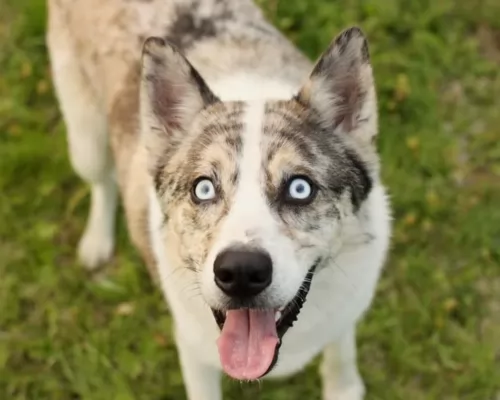 What a beautiful dog the Shepherd Husky is. He is a mix between the Husky and the German Shepherd. Other names for him include Gerberian Shepsky, German Husky and Siberian Shepherd.
What a beautiful dog the Shepherd Husky is. He is a mix between the Husky and the German Shepherd. Other names for him include Gerberian Shepsky, German Husky and Siberian Shepherd.
The German Shepherd originated in Germany and the Husky is from Siberia. We assume this mixed breed dog was bred in the USA. The true origin of the German Shepherd Husky dog is unclear but both the parent breeds have long histories.
The dog is recognized as a Hybrid by both the Dog Registry of America as well as the American canine hybrid Club.
 Large and heavy, the Kars Dog is strong, with a large head and broad chest. The height of the dog at the withers is 60 to 90cm and he weighs in at roughly 60 - 80kg.
Large and heavy, the Kars Dog is strong, with a large head and broad chest. The height of the dog at the withers is 60 to 90cm and he weighs in at roughly 60 - 80kg.
At one time the ears were cropped but they are left these days and then they are of medium length and floppy. The coat varies too in terms of length and color - short to longer variety coats. The coat can be a solid color or it can have patterns. You’ll find reddish brown dogs, grey and black dogs as well as dogs with a mix of colors.
The Kars is an aggressive, territorial dog, but with the correct training, socialization and upbringing, it can be a loving, amicable family pet.
Known also as the Kars Turkish Shepherd or Kars shepherd, he makes an ideal guarding dog as he is brave and devoted to those he is protecting. He is cautious and even unfriendly towards people he doesn’t know, and it is thought that because of his robustness, it might not be a good idea to leave him unsupervised with small children.
Nonetheless with training and socialization, the Kars is capable of being a super pet for all members of the family. Training him won’t be that easy as he is large and strong-willed, but the training will provide him with some basic good manners.
He will require a firm, confident owner and will require living in a home with a big garden or in the countryside as he requires a good amount of exercise.
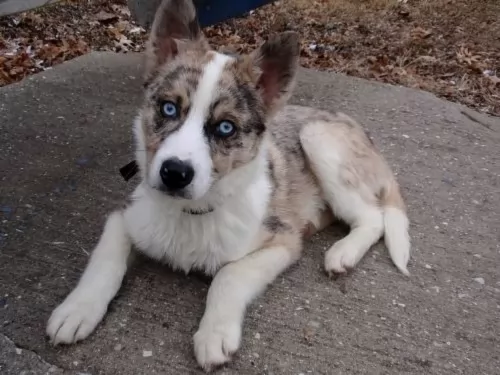 Solid and strong, the German Shepherd Husky mix is attractive. He is a fairly large dog standing at 51 to 64cm in height and weighing between 20 to 40kg.
Solid and strong, the German Shepherd Husky mix is attractive. He is a fairly large dog standing at 51 to 64cm in height and weighing between 20 to 40kg.
They’re powerful dogs these as they have a long history of being working dogs. The eyes of this beautiful dog can be brown, green or blue or a mix of these. The thick double coat protects them from the cold and in the warmer months, he sheds quite a bit.
The coat can be brown, black and tan or it can have creamy shades and be mixed with grey and white too.
The Shepherd Husky is a friendly, amicable dog who wants to please his owner. Training and socialization make him even more well adjusted. He is a dog that will get on well with children in the home as well as other dogs.
He is such an all rounder this dog – loyal, intelligent, social and loving - being great for accompanying you on walks and hikes but being willing to sit with you indoors too.
While he is adaptable and good natured and will happily live with his owner in the city or the countryside, he is better suited to life in the countryside. He also makes a great guard-dog.
 The Kars is a large dog and because of his past where he used to guard livestock, he is a dog used to wide open spaces. He will require a home with a good sized garden and a family who exercises him frequently.
The Kars is a large dog and because of his past where he used to guard livestock, he is a dog used to wide open spaces. He will require a home with a good sized garden and a family who exercises him frequently.
With the right kind of care, the Kars is able to strongly bond with his human family, taking his role as guardian and protector very well. He is alert and smart and that is why he will need training and socialization and a firm, fair human owner. He will then become a loving, devoted companion.
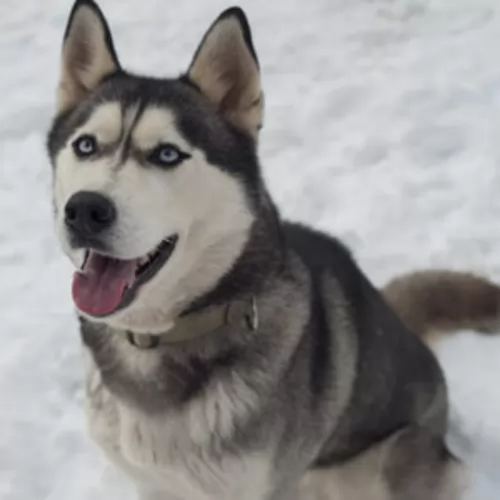 The German Shepherd Husky mix is such an ideal dog for single people, couples and families. This wolf-like breed is intelligent, loving,social and protective – the ideal family dog.
The German Shepherd Husky mix is such an ideal dog for single people, couples and families. This wolf-like breed is intelligent, loving,social and protective – the ideal family dog.
For those looking for an active dog that can be their jogging, walking and camping partner, this dog is for you. He loves to be busy, but he also loves being made a fuss of indoors too.
He has so many excellent qualities and is one dog breed that ticks all the right boxes for being such an all-round splendid pet and companion.
 The Kars is generally healthy and long-lived, being able to reach 12 years of age with ease if cared for properly. Every dog, even the most healthiest ones, will have some health issues, and with a large dog like this, it is hip dysplasia, obesity, cancer and heart problems.
The Kars is generally healthy and long-lived, being able to reach 12 years of age with ease if cared for properly. Every dog, even the most healthiest ones, will have some health issues, and with a large dog like this, it is hip dysplasia, obesity, cancer and heart problems.
Coughing is a symptom of different illnesses, with one of them being heart disease. If your dog is still coughing after several days, its time to see the vet.
When your dog hasn’t exercised, you’ll see him battling to breathe or the breathing will be rapid. He’ll be reluctant to walk and play too and may be disinterested in his food. Edema, the swelling of body tissues is also a sign of heart disease.
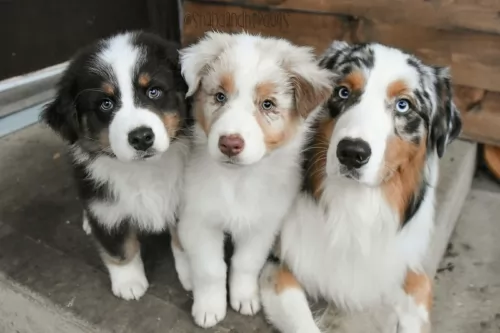 This is such a robust dog that you an scarcely think of him being sickly and yet there are some illnesses that are common to all dogs and which your German Shepherd Husky mix might get as well.
This is such a robust dog that you an scarcely think of him being sickly and yet there are some illnesses that are common to all dogs and which your German Shepherd Husky mix might get as well.
Hip dysplasia is common in German Shepherd dogs as well as arthritis and thyroid dysfunction. Bloat and cancer are other diseases to watch for.
Canine hip dysplasia is a genetic disease characterised as a disease of the hip. The malformation can lead to arthritis and pain and ultimately lead to the loss of hip function, crippling your dog.
You will need to get your pet to the vet for treatment to make his life more comfortable.
 Your Kars dog can be a wonderful addition to your home, but you need to know how to care for a big dog before you get carried away and add a large puppy breed to your family.
Your Kars dog can be a wonderful addition to your home, but you need to know how to care for a big dog before you get carried away and add a large puppy breed to your family.
Too many people buy a cute bundle of fur and get rid of it when he is no longer a cute puppy. Before you bring a giant breed dog into your home, take note of some useful tips to keep him in tip top condition -
If you bring a puppy home, he’ll need to be fed 4 times a day with special puppy food. There are excellent commercially manufactured puppy foods on the market and you will need to get the one that caters for ‘large- or giant puppy breeds’, as the Kars is a very big dog.
As your dog reaches adulthood you’ll feed him less. If in any doubt as to the kind of food to give your dog to maintain good health, speak to your vet.
Every dog will need exercise to keep him trim and fit but to also stimulate their minds. Providing your Kars dog with exercise such as walks and ball games will also ensure he doesn’t become bored.
Your pet will need a nice quiet, warm, dry place to sleep and rest. If he is an outdoor dog during the day, make sure that he has a place to rest in the shade. Make sure he has a non-stop supply of fresh, cool water too that is placed in a cool, reachable spot.
Your large pet is an average shedder and to keep his thick coat in tip top condition, you want to be sure to brush him at least twice a week.
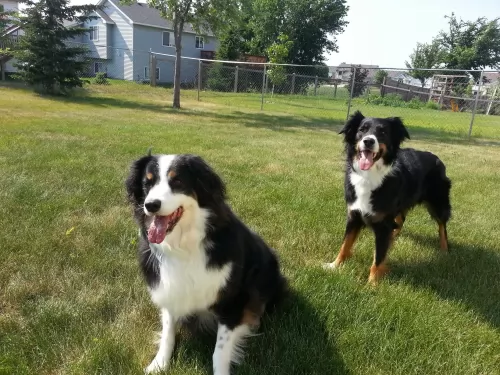 ◆Brush the coat of your Shepherd Husky twice a week to rid the coat of loose hairs. This dog’s hair sheds quite heavily as the weather warms and he may require brushing more often.
◆Brush the coat of your Shepherd Husky twice a week to rid the coat of loose hairs. This dog’s hair sheds quite heavily as the weather warms and he may require brushing more often.
◆When you brush him, check the ears and eyes for infection. The eyes must be bright and clear.
◆Feed your Shepherd Husky the best food there is as he is an energetic, working breed. The commercially manufactured foods can be a good, convenient choice but you need to make sure it is one of the better brands.
Some of the cheaper brands are full of bad ingredients that can make a dog sick.Try and give him some home-made foods that are healthy and nutritious. This food can be added to his dry kibble twice a week.
Boiled chicken, brown rice or pasta and spinach, sweet potatoes and carrots are a tasty healthy choice for your pet. Try and include some raw meat into the diet as well.